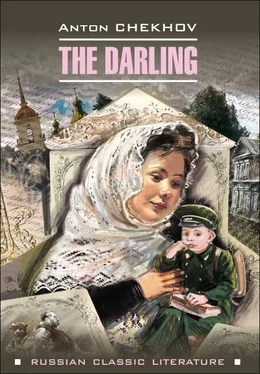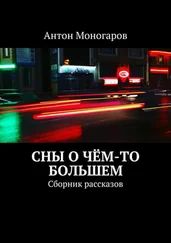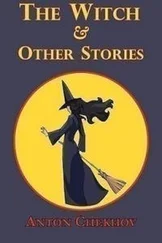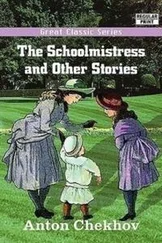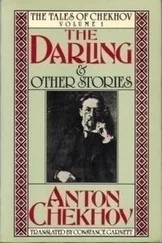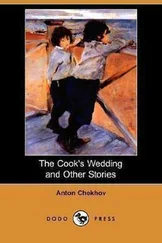Антон Чехов - The darling / Душечка. Сборник рассказов
Здесь есть возможность читать онлайн «Антон Чехов - The darling / Душечка. Сборник рассказов» — ознакомительный отрывок электронной книги совершенно бесплатно, а после прочтения отрывка купить полную версию. В некоторых случаях можно слушать аудио, скачать через торрент в формате fb2 и присутствует краткое содержание. Год выпуска: 2019, ISBN: 2019, Издательство: Литагент Каро, Жанр: Классическая проза, Русская классическая проза, Прочая научная литература, на английском языке. Описание произведения, (предисловие) а так же отзывы посетителей доступны на портале библиотеки ЛибКат.
- Название:The darling / Душечка. Сборник рассказов
- Автор:
- Издательство:Литагент Каро
- Жанр:
- Год:2019
- ISBN:978-5-9925-1149-9
- Рейтинг книги:5 / 5. Голосов: 1
-
Избранное:Добавить в избранное
- Отзывы:
-
Ваша оценка:
- 100
- 1
- 2
- 3
- 4
- 5
The darling / Душечка. Сборник рассказов: краткое содержание, описание и аннотация
Предлагаем к чтению аннотацию, описание, краткое содержание или предисловие (зависит от того, что написал сам автор книги «The darling / Душечка. Сборник рассказов»). Если вы не нашли необходимую информацию о книге — напишите в комментариях, мы постараемся отыскать её.
The darling / Душечка. Сборник рассказов — читать онлайн ознакомительный отрывок
Ниже представлен текст книги, разбитый по страницам. Система сохранения места последней прочитанной страницы, позволяет с удобством читать онлайн бесплатно книгу «The darling / Душечка. Сборник рассказов», без необходимости каждый раз заново искать на чём Вы остановились. Поставьте закладку, и сможете в любой момент перейти на страницу, на которой закончили чтение.
Интервал:
Закладка:
“There is no proper veterinary inspection in our town, and that’s the cause of all sorts of epidemics. One is always hearing of people’s getting infection from the milk supply, or catching diseases from horses and cows. The health of domestic animals ought to be as well cared for as the health of human beings.”
She repeated the veterinary surgeon’s words, and was of the same opinion as he about everything. It was evident that she could not live a year without some attachment, and had found new happiness in the lodge. In case of any one else this would have been censured, but no one could think ill of Olenka; everything she did was so natural. Neither she nor the veterinary surgeon said anything to other people of the change in their relations, and tried, indeed, to conceal it, but without success, for Olenka could not keep a secret. When he had visitors, men serving in his regiment, and she poured out tea or served the supper, she would begin talking of the cattle plague, of the foot and mouth disease, and of the municipal slaughterhouses. He was dreadfully embarrassed and when the guests had gone he would seize her by the hand and hiss angrily:
“I’ve asked you before not to talk about what you don’t understand. When we veterinary surgeons are talking among ourselves, please don’t put your word in. It’s really annoying.”
And she would look at him with astonishment and dismay, and ask him in alarm: “But, Voloditchka, what am I to talk about?”
And with tears in her eyes she would embrace him, begging him not to be angry, and they were both happy.
But this happiness did not last long. The veterinary surgeon departed, departed for ever with his regiment, when it was transferred to a distant place – to Siberia, it may be. And Olenka was left alone.
Now she was absolutely alone. Her father had long been dead, and his armchair lay in the attic, covered with dust and lame of one leg. She got thinner and plainer, and when people met her in the street they did not look at her as they used to, and did not smile to her; evidently her best years were over and left behind, and now a new sort of life had begun for her, which did not bear thinking about. In the evening Olenka sat on the porch, and heard the band playing and the fireworks popping in the “Tivoli”, but now the sound stirred no response. She looked into her yard without interest, thought of nothing, wished for nothing, and afterwards, when night came on she went to bed and dreamed of her empty yard. She ate and drank as it were unwillingly.
And what was worst of all, she had no opinions of any sort. She saw the objects about her and understood what she saw, but could not form any opinion about them, and did not know what to talk about. And how awful it is not to have any opinions! One sees a bottle, for instance, or the rain, or a peasant driving in his cart, but what the bottle is for, or the rain, or the peasant, and what is the meaning of it, one can’t say, and could not even for a thousand roubles. When she had Kukin, or Pustovalov, or the veterinary surgeon, Olenka could explain everything and give her opinion about anything you like, but now there was the same emptiness in her brain and in her heart as there was in her yard outside. And it was as harsh and as bitter as wormwood in the mouth.
Little by little the town grew in all directions. The road became a street, and where the “Tivoli” and the timber-yard had been, there were new turnings and houses. How rapidly time passes! Olenka’s house grew dingy, the roof got rusty, the shed sank on one side, and the whole yard was overgrown with docks and stinging-nettles. Olenka herself had grown plain and elderly; on summer she sat in the porch, and her soul, as before, was empty and dreary and full of bitterness. In winter she sat at her window and looked at the snow. When she caught the scent of spring, or heard the chime of the church bells, a sudden rush of memories from the past came over her, there was a tender ache in her heart, and her eyes brimmed over with tears; but this was only for a minute, and then came emptiness again and the sense of the futility of life. The black kitten, Briska, rubbed against her and purred softly, but Olenka was not touched by these feline caresses. That was not what she needed. She wanted a love that would absorb her whole being, her whole soul and reason – that would give her ideas and an object in life, and would warm her old blood. And she would shake the kitten off her skirt and say with vexation:
“Get away; I don’t want you!”
And so it was, day after day and year after year, and no joy, and no opinions. Whatever Mavra the cook said she accepted.
One hot July day, towards evening, just as the cattle were being driven away, and the whole yard was full of dust, some one suddenly knocked at the gate. Olenka went to open it herself and was dumbfounded when she looked out: she saw Smirnin, the veterinary surgeon, grey-headed, and dressed as a civilian. She suddenly remembered everything. She could not help crying and letting her head fall on his breast without uttering a word, and in the violence of her feeling she did not notice how they both walked into the house and sat down to tea.
“My dear Vladimir Platonitch! What wind has brought you?” she muttered, trembling with joy.
“I want to settle here for good, Olga Semyonovna,” he told her. “I have resigned my post, and have come to settle down and try my luck on my own account. Besides, it’s time for my boy to go to school. He’s a big boy. I am reconciled with my wife, you know.”
“Where is she?” asked Olenka.
“She’s at the hotel with the boy, and I’m looking for lodgings.”
“Good gracious, my dear soul! Lodgings? Why not have my house? Why shouldn’t that suit you? Why, my goodness, I wouldn’t take any rent!” cried Olenka in a flutter, beginning to cry again. “You live here, and the lodge will do nicely for me. Oh dear! how glad I am!”
Next day the roof was painted and the walls were whitewashed, and Olenka, with her arms akimbo walked about the yard giving directions. Her face was beaming with her old smile, and she was brisk and alert as though she had waked from a long sleep. The veterinary’s wife arrived – a thin, plain lady, with short hair and a peevish expression. With her was her little Sasha, a boy of ten, small for his age, blue-eyed, chubby, with dimples in his cheeks. And scarcely had the boy walked into the yard when he ran after the cat, and at once there was the sound of his gay, joyous laugh.
“Is that your puss, auntie?” he asked Olenka. “When she has little ones, do give us a kitten. Mamma is awfully afraid of mice.”
Olenka talked to him, and gave him tea. Her heart warmed and there was a sweet ache in her bosom, as though the boy had been her own child. And when he sat at the table in the evening, going over his lessons, she looked at him with deep tenderness and pity as she murmured to herself:
“You pretty pet! … my precious! … Such a fair little thing, and so clever.”
“‘An island is a piece of land which is entirely surrounded by water,’” he read aloud.
“An island is a piece of land,” she repeated, and this was the first opinion to which she gave utterance with positive conviction after so many years of silence and dearth of ideas.
Now she had opinions of her own, and at supper she talked to Sasha’s parents, saying how difficult the lessons were at the high schools, but that yet the high school was better than a commercial one, since with a high-school education all careers were open to one, such as being a doctor or an engineer.
Sasha began going to high school. His mother departed to Harkov 5 5 Harkov – a city in the Ukraine
to her sister’s and did not return;
Интервал:
Закладка:
Похожие книги на «The darling / Душечка. Сборник рассказов»
Представляем Вашему вниманию похожие книги на «The darling / Душечка. Сборник рассказов» списком для выбора. Мы отобрали схожую по названию и смыслу литературу в надежде предоставить читателям больше вариантов отыскать новые, интересные, ещё непрочитанные произведения.
Обсуждение, отзывы о книге «The darling / Душечка. Сборник рассказов» и просто собственные мнения читателей. Оставьте ваши комментарии, напишите, что Вы думаете о произведении, его смысле или главных героях. Укажите что конкретно понравилось, а что нет, и почему Вы так считаете.
